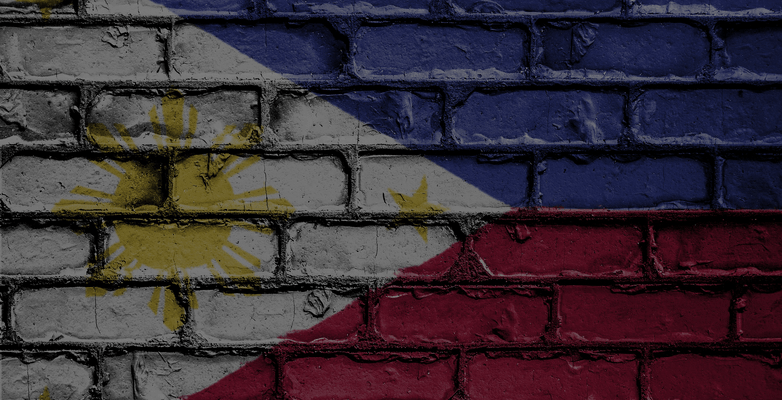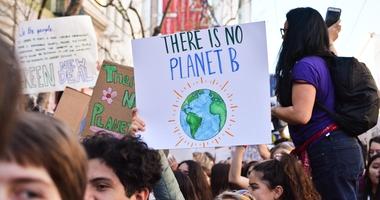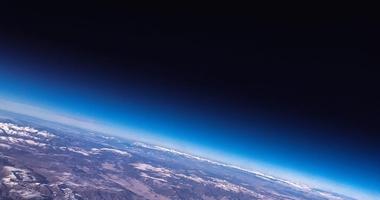
The Case for Climate in the Philippines’ Marcos Restoration Era
The election of Ferdinand Marcos, Jr. as president poses real questions to the future of democracy and climate action in one of the world’s most climate-vulnerable nations. Now is the time for activists to commit to the fight ahead.
By Nazrin Castro, Kristine Galang, and Christian Soqueño, The Climate Reality Project Philippines
Thirty-six years ago, on February 25, 1986, the whole world witnessed the Philippines momentously topple the 20-year dictatorship of Ferdinand Marcos through a peaceful "People Power" revolution.
This week, the son and namesake of the late dictator has effectively won the presidency by a landslide, sealing the revival of a family name that is hounded by some of the most horrendous human rights violations and corruption cases ever recorded in history.
The Marcos Restoration – as a renowned Filipino historian called it – did not happen overnight. It was a result of a massive, organized, and decades-long effort to rebuild political networks and whitewash the Marcos regime in the minds of those too young to remember or witness firsthand the atrocities under the martial law era.
But the sins of the Marcos dictatorship were well-documented. Under his rule, the senior Marcos abolished Congress, shut down media outlets, used the military to torture and kill people expressing dissent, and plundered billions of dollars from state funds.
However, despite numerous court rulings1 affirming the regime’s unlawful acts, the Marcos family has refused to publicly acknowledge their wrongdoings and has regained their popularity among Filipinos, thanks to Marcos loyalists and cronies.
They also benefited from the failure of the education system to provide a sober recollection of martial law to younger generations. The massive disinformation campaign on social media platforms, such as Facebook, Youtube, and Tiktok – the same playbook that catapulted Rodrigo Duterte to the presidency in 2016 –also played a huge role in the imminent return of the Marcos family to power.2
The Implications for Climate Action
But what does this era of Marcos Restoration mean for a country among the most vulnerable to the climate crisis? What is at stake in the country’s next six years of a Marcos presidency with the shadow of his late father and dictator’s crimes cast over him?
First, Ferdinand Marcos, Jr.’s efforts to promote and support the rights of climate and environmental defenders will dictate the progress of the climate movement in the country.
We’ve always believed that a vibrant democracy is key to addressing the climate crisis. But protecting the human rights of climate and environmental defenders remains a grave concern, as the Philippines was reported to be the third-deadliest country for environmental defenders in the world in 2020, according to the international watchdog Global Witness.
Ferdinand Marcos, Jr. has made it hard to assess his stance on this very important issue.
And so these questions linger in our minds: Will his administration support the Environmental Defense Bill pending in Congress? Will he end the practice of blatant red-tagging and the culture of impunity espoused by the previous administration? Will he put in place mechanisms to ensure that climate and environmental advocates are heard and consulted? Or will he use the Anti-Terrorism Act of 2020 to clamp down on political dissent?
Second, the new president’s success or failure in implementing climate policies will decide who survives and thrives in this country.
Hit by the tropical cyclones and other weather extremes that are becoming more frequent and destructive as global warming continues, the Philippines experiences escalating losses and damages year after year. This cycle of destruction and rehabilitation can only be addressed by deploying science and evidence-based solutions and by ensuring that the global community follows through with its commitment to limit global warming to the critical limit of 1.5 degrees Celsius above pre-industrial levels, as enshrined in the Paris Agreement.
Global climate inaction, according to scientists, would lead to a 2.2.-3.5 degree warmer world and would result in more frequent and more intense climate impacts, such as sea-level rise, drought, water scarcity, and food insecurity.
Could Ferdinand Marcos, Jr.’s administration then streamline and fortify the country’s climate change adaptation and mitigation policies and disaster risk reduction and management efforts? Will his leadership elevate the Philippines’ position as a formidable champion of climate-vulnerable countries in this critical decade for climate and environmental action?
Lastly, the new president’s success or failure in leading the country’s transition to a renewable energy system will determine whether or not the Filipino people will finally enjoy cleaner air, healthier communities, and access to clean, reliable, and affordable electricity.
Ferdinand Marcos, Jr. may explore and accelerate renewable energy sources, and no longer use coal and other fossil fuels. All good, but his plans to incorporate nuclear power into the country’s energy mix and to revive the Bataan Nuclear Power Plant – a project built during his father’s administration but not made operational due to issues of safety and corruption – raises concerns.
His thinking is clear: Nuclear energy will lower electricity rates in the Philippines. But given the huge cost of sustaining and building nuclear power plants in the country, it is not a cheaper alternative to fossil fuels and definitely not a viable solution to the country’s energy security issues.
Electricity rates are already high in the country due to imported fossil fuels whose prices are driven by the volatile global market. The same goes with nuclear energy as we would have to rely on imported uranium as nuclear fuel. Moreover, we have to consider the unfathomable and dangerous risks posed by nuclear power plants to our communities, especially during times of disastrous and calamitous events. Then there’s the question of where will we store and dispose of the nuclear waste?
Funds to invest in nuclear power should rather be used in harnessing the country’s abundant renewable energy sources, specifically solar and wind energy, which are now more proven to be more economical to build.
Furthermore, a landmark report released just last week by the Philippine Commission on Human Rights stated that the world’s carbon majors (aka largest fossil fuel producers) engaged in willful obfuscation of climate science. Its specific recommendations to the Philippine government include implementing a coal moratorium and spearheading the transition to a renewable energy system.
Will Ferdinand Marcos, Jr. uphold the findings of this report and prioritize the development of renewable energy? Will he actually listen to science and economists and steer the country away from nuclear energy?
The answers to these questions shall be the barometer by which the Marcos Administration will be measured in terms of climate and environmental governance.
Navigating the Next Six Years
In line with this, The Climate Reality Project Philippines vows to remain vigilant as it navigates a new era of Philippine democracy.
The current political climate will make our work on elevating climate discourse and pushing for climate solutions twice as hard. Challenging times are ahead. Nevertheless, we are ready to demand greater accountability and transparency from the government.
We will remain steadfast on our call for the next administration to prioritize the development of a comprehensive roadmap for implementing the country’s first nationally determined contribution (NDC) under the Paris Agreement – a plan that should spell out detailed projects and timetables, as well as financing for the transition to a low-carbon economy.
To address the country’s medium and long-term adaptation needs, we will also continue to push for the National Adaptation Plan (NAP) spearheaded by the Climate Change Commission (CCC). This involves ensuring the completion of the updating process for the existing National Climate Change Action Plan (NCCAP).
Moreover, our fight to eliminate single-use plastics in our communities and to democratize our streets with renewable and active modes of mobility will continue. With or without support from government.
Moving forward, we will intensify our contributions to the growing efforts to fight fake news online. We intend to strengthen partnerships and forge new ones with the media, the academy, and other organizations to ramp up efforts against disinformation.
With the Anti-Terror Law still in effect, we will also strive to find a safe space and path to continuously support the initiatives of more than 1,800 Climate Reality Leader activists in the country.
The strength of our organization lies in the unwavering passion and commitment of our community of Climate Reality Leaders. The same spirit will sustain our advocacy in the coming years.
To this end, we also call on the other branches of Climate Reality to work closely with us in advancing scalable and replicable climate solutions and in battling disinformation systems that are threatening democracy not just in the Philippines but across the globe.
To stay in the loop with the fight for climate solutions in the Philippines and around the world, sign up for our email activist list today.
Notes
1: In 2003, the Supreme Court of the Philippines ruled that over 25 billion pesos worth of Marcos assets were ill-gotten wealth—a decision that concluded a near two-decade legal struggle between the government and the Marcos family over the custody of assets kept in various Swiss bank accounts.
In 2018, anti-graft court Sandiganbayan convicted the family matriarch Imelda Marcos of seven counts of graft related to financial dealings with Swiss-based NGOs during her stint as government official under her husband’s rule.
At the end of 2020, the Philippine Presidential Commission on Good Government (PCGG) released a breakdown of the P174.2 billion worth of ill-gotten wealth recovered from the Marcos family. It revealed that it is still running after P125.9 billion worth of real and personal properties—all of which are still under litigation.
In 2021, the Sandiganbayan enforced a 1992 Hawaii court decision that declared the Philippine Government the legal owner of bank certificates that the Marcoses took with them when they fled there in 1986.
2: Marcos, Jr. served in the Philippine Senate for six years before his unsuccessful run for Vice President in 2016 while his sister Imee, on the other hand, won a seat in the Senate in 2019.




